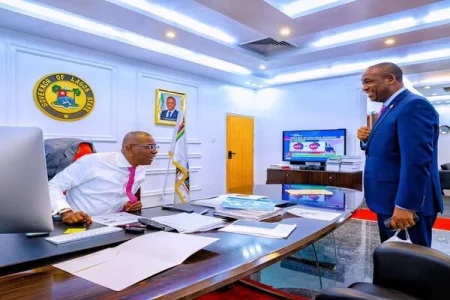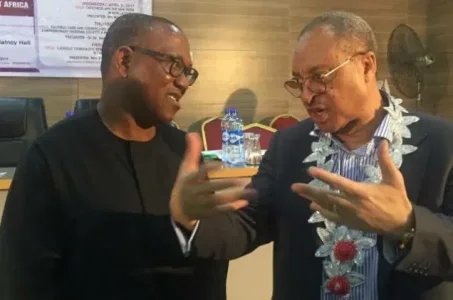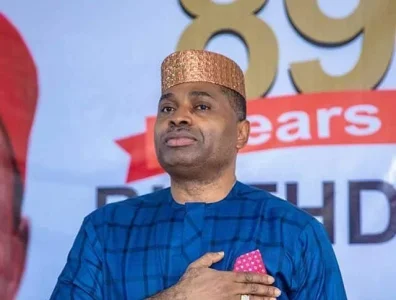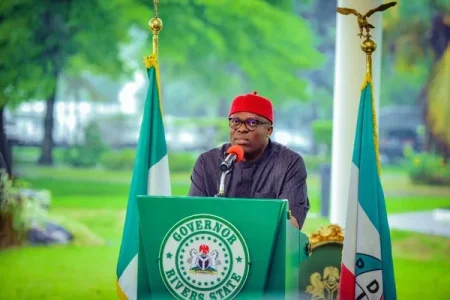
The Supreme Court unanimously affirmed Governor Babajide Sanwo-Olu's victory in the Lagos State governorship election held on March 18. The decision, delivered by a five-member panel led by Justice Inyang Okoro, dismissed two appeals brought before the court by the Labour Party's candidate, Mr. Gbadebo Rhodes-Vivour, and the Peoples Democratic Party's candidate, Abdulazeez Adediran, popularly known as Jandor.
The appeals centered on a challenge to Sanwo-Olu's eligibility to contest the election, raising questions about his deputy and running mate, Obafemi Hamzat, who was alleged to have dual citizenship, including that of the United States of America (USA).
The Labour Party and Rhodes-Vivour argued that Hamzat's possession of dual citizenship rendered him constitutionally ineligible to contest the election, thus invalidating Sanwo-Olu's candidacy. Both the Independent National Electoral Commission (INEC), Sanwo-Olu, his deputy, and the All Progressives Congress (APC) urged the Supreme Court to dismiss the appeal, citing a lack of competence.
The Supreme Court's lead judgment, delivered by Justice Mohammed Garba Lawal, emphasized the absence of evidence proving that Hamzat denounced his Nigerian citizenship. The court held that the prohibitions outlined in Section 28 of the 1999 Constitution, as amended, were not applicable to a person who is a Nigerian citizen by birth.
According to the Supreme Court, there is no legal provision stripping a Nigerian citizen by birth of their status, rights, and privileges due to acquiring citizenship from another country through naturalization. The court affirmed the decisions of both the Lagos State Governorship Election Petitions Tribunal and the Court of Appeal, which unanimously rejected the allegations and the LP's petition against the election outcome.
In conclusion, the Supreme Court dismissed Rhodes-Vivour's appeal as lacking in merit, solidifying Sanwo-Olu's victory and upholding the legality of his candidacy in the gubernatorial contest. The ruling carries significant implications for the political landscape in Lagos, affirming the electoral process and setting a precedent for similar challenges in the future




